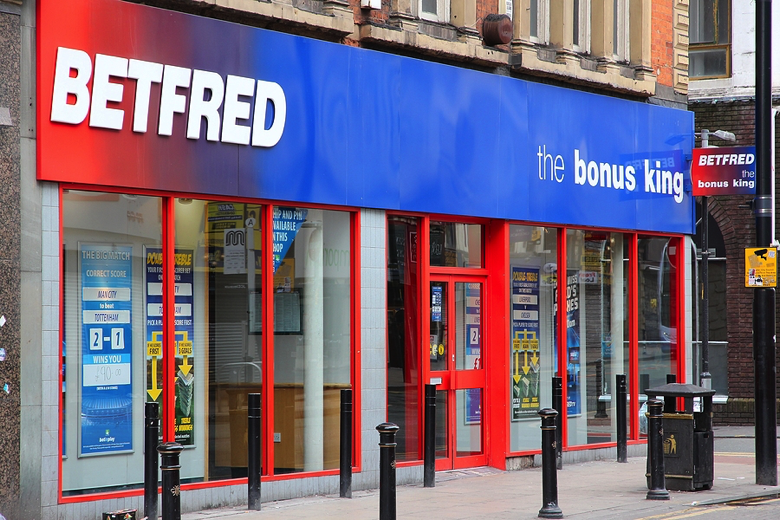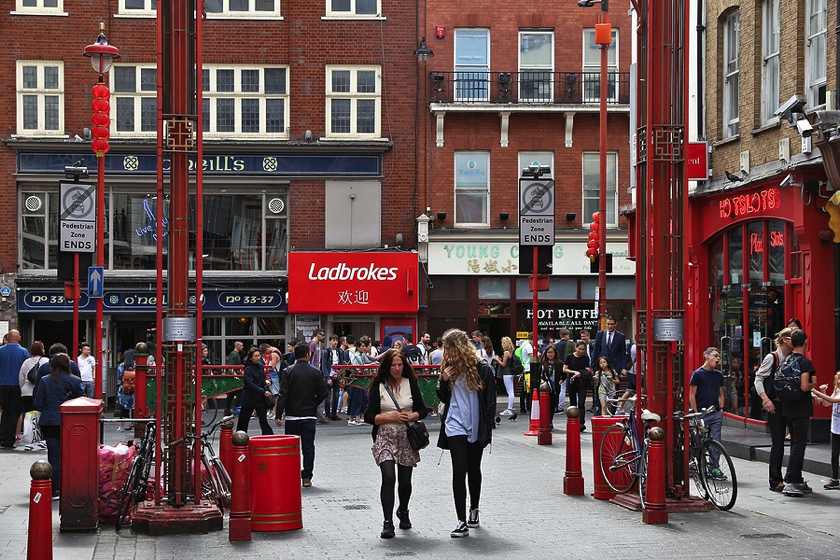May 1961 is when the first betting shops in the UK opened their doors to punters. Football bookmakers began to spring up across Europe and Asia, before making their way across the Atlantic to some parts of the USA in the 1990s – Las Vegas and New Jersey, specifically. Law changes there in recent times has opened up football betting across North America, while betting shops remain a bastion of the British high street.
The birth of accessible and affordable broadband internet changed the face of the betting industry in the 2000s, with many of the leading firms and a galaxy of new start-ups launching betting websites and, latterly, dedicated apps. Times have become hard for high street bookmakers then, although these shops remain a fundamental part of the punting experience – there’s still around 6,000 betting shops on UK soil to this day.
Bookie Sign Up Offers For Football
What Is a Bookmaker?
Amazingly, bookmakers have been in operation since the 1800s at UK racecourses. The bookmaker sets betting odds for sporting events (and increasingly TV and novelty markets like the Oscars and Eurovision Song Contest) and then accepts bets from the public on them. If the bet wins, they pay out a return based upon the odds taken and the amount staked. If the bet loses, the bookie trousers the lot.
Football bookmakers offer prices for leagues and tournaments around the world. The Premier League, Champions League and top European competitions like La Liga, Serie A and Bundesliga are the most popular options for punters, although casual bettors also wade into the big international events like the World Cup and European Championship.
Setting the Odds
Of course, the bookies don’t just pluck their odds out of thin air – that’s not how you build a succesful business. They instead employ some of the sharpest analytical and mathematical minds to crunch the numbers and come up with probabilities of each team winning and the draw. Increasingly, firms are using AI and machine learning to improve the accuracy of their predictions yet further.
Once the bookmakers have their raw odds in place, they then build in a margin which helps to a) maximise their earnings and b) limit their liabilities such a certain team win. So, football betting markets are never normally 100% when the home win, draw and away win odds are combined – they are typically 105% or higher, depending on the competition. That, in one sense, is how football bookmakers yield an overall advantage.
Spotting a Value Bet
The job for punters, meanwhile, is to try and spot value bets – those markets where the bookmakers have been too generous in their pricing. Such moments are rare, but they can be found; particularly in more niche leagues around the world.
The leading bookmakers have expanded their repertoire since those early days in the 1960s to incorporate new betting options into their offering. As well as match result, punters can now wager on a variety of goals-based markets alongside cards, corners, half time and a range of other options. Increasingly, football bookmakers are offering player ‘prop’ bets on things like shots, passes and tackles too. Readers in the UK will still be able to find a betting shop in their local town or city – or, of course, access dozens of licensed betting sites and apps on their computer, smartphone or tablet.
Are High Street Betting Shops & Online Bookmakers Different?

Aside from the obvious, you will notice some key differences when betting in your local high street shop and online. The odds you take can be different in store and online. Why? Usually, it’s because of the margin applied to the prices. This will typically be higher in a betting shop, because online football betting is an incredibly competitive space – so firms place a lower margin on their prices, which in turn, makes them appear more favourable on odds comparison sites.
Incredibly, the difference in margin can be as much as 8% higher in the shops than online, so if you are an odds-conscious punter – and, let’s face it, shouldn’t we all be? – then using a betting site or app can be a smarter way to bet.
Promotions
Similarly, many of the best bonuses and promotions are available as online exclusives – you may not be able to access these in the shops. This is particularly the case with welcome bonuses – a betting shop will typically offer you absolutely nothing for placing your first bet with them, whereas the same firm online might match your first deposit with bonuses, free bets and the like.
Convenience
The most obvious perk of online betting is that you can wager in a matter of seconds. This is particularly useful if you are watching a game and want to bet on either team to win, or perhaps for there to be goals, in play – here, time is of the essence. It’s rather inconvenient to have to traipse into town just to get your bet on.
Choice
Here’s another great thing about online betting: you have literally dozens of UK licensed bookmakers to choose from, ensuring you get the best odds, bonuses and features. How many betting shops do you have within a 15-minute radius of your home? One, maybe two at best? You’re unlikely to get the best prices and service from such a monopoly, so broadening your horizons online has plenty of merit.
Restrictions
Mind you, there are perks to betting at a shop too. Many successful punters have found their online accounts restricted over the years – if you win too many times, don’t be surprised if you’re restricted to stake sizes of just pence. It sounds crazy, but bookmakers are legally allowed to limit winners, as it’s in the T&Cs you sign when creating an account with them.
The chances of being limited in a betting shop are much lower, so you can stake exactly what you want to. You won’t need to set up an account either, which will appeal to some who simply don’t want to share their personal information online wherever they can avoid it.
Affordability Checks
A new piece of legislation that is incoming to the industry is affordability checks, where online football bookmakers will become more invasive if you deposit or bet a large (or unusually high for your normal activity) amount – you may even be asked to prove you can afford those bets with bank statements and/or payslips, which many consider a flagrant breach of personal choice.
Although not confirmed as yet, it seems unlikely that betting shop customers will be subject to such affordability checks – betting shop employees would have to keep physical copies of your information on file, which would leave the bookmaker vulnerable to possible data breaches.
What About Bookmakers at Football Grounds?

When you attend a game at a football stadium, you may well notice that there’s a bookmaker operating on the concourse. This could be a franchise of one of the big betting firms or an independent, who will be offering odds both on the game you are watching and other fixtures from across England and the rest of the world.
You can bet in cash or set up an online account, which can make a difference if you want to receive any winnings on the web that you can then transfer via your debit card or PayPal. For the most part, you will have to set up an account with the bookmaker in order to take advantage of their service, which might put off some from sharing their personal data. This is, of course, kept perfectly safe and not shared with third parties.
Taking the Price
However, it’s worth remembering that if you bet with an in-stadium bookmaker connected to one of the larger firms, you can collect your winnings from any of their high street shops – you don’t have to queue up after the game to get your hands on your prize. As with traditional high street betting shops, punters can pick up paper-based football betting coupons to scan the odds of. This can be either an advantage or a disadvantage – these coupons are printed in advance with live odds taken at the time of publishing.
What if the prices move within an hour of kick-off, maybe because of a surprise in the team news? These printed odds can therefore offer excellent value on one side of a game and poor value on the other, so these in-stadium bookmakers are an interesting proposition given that you can bet right up until kick-off with them.
Only Available in Bigger Stadiums
It should be said that not all grounds in the UK have in-stadia bookmakers – in fact, only around 30 in England do. But if you are attending a Premier League game, you will find bookmakers at the likes of Arsenal’s Emirates Stadium, Villa Park, Stamford Bridge, Anfield and Old Trafford.
These bookies can also be a good option when betting on a big game that you are attending in person. They will often carry enhanced odds for specific correct scores and first goalscorers that you won’t find anywhere else, and while these can be high risk betting markets to try, the extra reward can pay off if you predict the outcome correctly.



